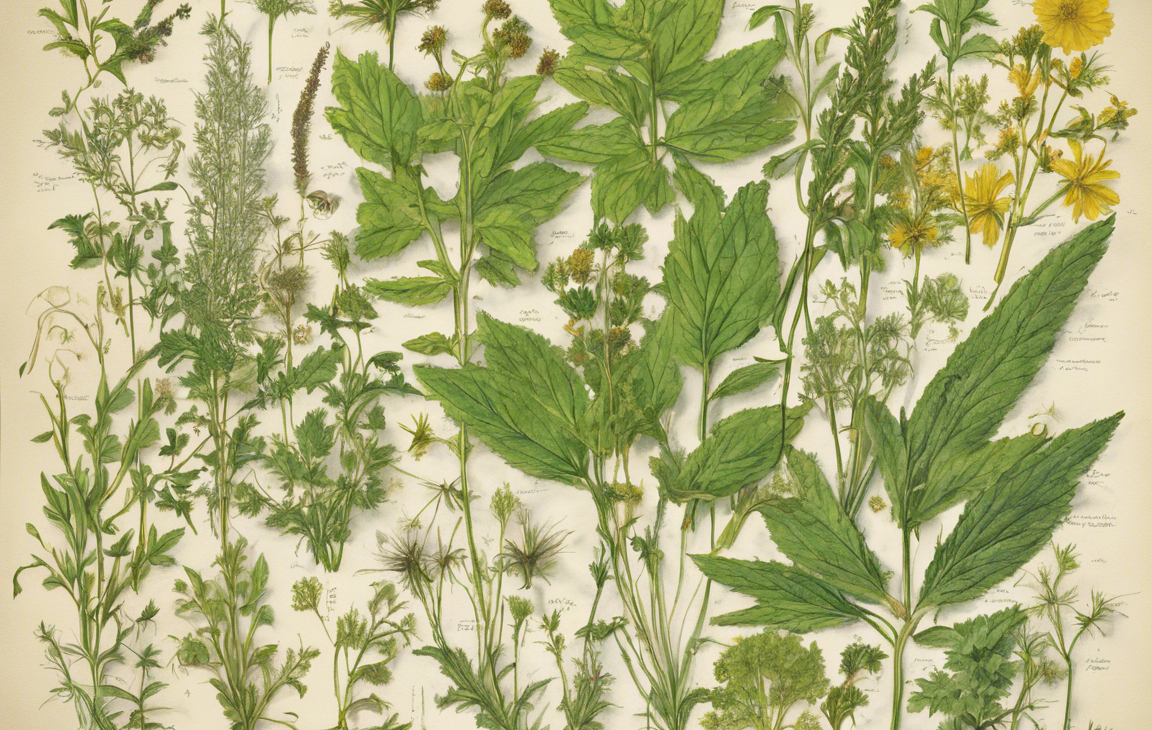Nature has always been a rich source of remedies for various ailments, with herbal medicine being one of the oldest forms of healthcare known to humanity. Herbal remedies have been used for thousands of years in different cultures across the globe for their healing properties. In recent years, there has been a resurgence of interest in herbal medicine as people look for more natural and sustainable ways to maintain health and well-being. This article delves into the world of herbal pathways, exploring the benefits, uses, and precautions associated with herbal remedies.
Understanding Herbal Medicine
Herbal medicine, also known as herbalism or phytotherapy, involves using plants’ seeds, berries, roots, leaves, bark, or flowers for medicinal purposes. These plant-based remedies contain active ingredients that can help alleviate symptoms and promote healing in the body. Herbs are often prepared and administered in various forms, including teas, tinctures, capsules, oils, ointments, and poultices.
Benefits of Herbal Medicine
1. Holistic Approach
Herbal medicine takes a holistic approach to health, addressing not only the symptoms of a particular ailment but also the root cause of the issue. By treating the whole person, herbal remedies aim to restore balance and promote overall well-being.
2. Natural Ingredients
Unlike many pharmaceutical drugs that contain synthetic chemicals, herbal remedies are derived from plants and are considered more natural and gentle on the body. This makes them a preferred choice for those looking to avoid harsh side effects.
3. Wide Range of Applications
Herbal medicine can be used to address a variety of health concerns, including digestive issues, skin conditions, respiratory problems, stress, insomnia, and more. There is a vast array of herbs available, each with its unique properties and potential benefits.
4. Sustainability
Growing herbs for medicinal purposes can promote sustainability and environmental conservation. By cultivating medicinal plants, we can reduce our reliance on pharmaceuticals and support the natural ecosystem.
Popular Herbs and Their Uses
1. Echinacea
- Uses: Boosts immune system, fights colds and infections.
2. Ginger
- Uses: Relieves nausea, aids digestion, reduces inflammation.
3. Lavender
- Uses: Calms nerves, promotes relaxation, aids sleep.
4. Turmeric
- Uses: Anti-inflammatory, antioxidant, supports joint health.
5. Peppermint
- Uses: Soothes digestive issues, relieves headaches, freshens breath.
Precautions and Considerations
While herbal remedies can offer many benefits, it is essential to use them safely and wisely. Here are some precautions and considerations to keep in mind:
-
Consult a Healthcare Professional: Before starting any herbal treatment, consult with a qualified herbalist or healthcare provider, especially if you are pregnant, nursing, or have underlying health conditions.
-
Quality and Purity: Ensure that you source herbal products from reputable suppliers to guarantee their quality and purity. Organic herbs are often preferred to avoid exposure to pesticides and other chemicals.
-
Dosage and Administration: Follow dosing instructions carefully and be mindful of potential interactions with medications you may be taking. It’s essential to understand how to prepare and administer herbal remedies correctly.
-
Allergies and Sensitivities: Be aware of any allergies or sensitivities you may have to certain herbs. Conduct a patch test before using any herbal product topically to avoid adverse reactions.
-
Side Effects and Interactions: Some herbal remedies can have side effects or interact with medications. Educate yourself about potential risks and always monitor your body’s response to any herbal treatment.
Frequently Asked Questions (FAQs)
1. Is herbal medicine safe to use?
- Answer: Herbal medicine can be safe when used appropriately and under the guidance of a knowledgeable healthcare provider. It is essential to research herbs thoroughly and consider individual health factors before use.
2. Can herbal remedies be combined with pharmaceutical drugs?
- Answer: Herbal remedies can interact with pharmaceutical drugs, so it’s crucial to consult with a healthcare professional before combining them to prevent any adverse effects.
3. Are there any herbs that are not safe for consumption?
- Answer: Some herbs can be toxic if consumed in large quantities or by certain individuals. Research each herb thoroughly and avoid those with known toxic effects.
4. How long does it take to see results from herbal treatments?
- Answer: The time it takes to see results from herbal treatments can vary depending on the individual’s condition, the herb being used, and the form of administration. Patience and consistency are key.
5. Can pregnant women use herbal remedies?
- Answer: Pregnant women should exercise caution when using herbal remedies, as some herbs can have adverse effects during pregnancy. It is best to consult with a healthcare provider before using any herbal products.
Conclusion
Exploring herbal pathways can open doors to alternative healing methods that harness the power of nature’s gifts. By understanding the benefits, uses, precautions, and considerations associated with herbal medicine, individuals can make informed decisions about incorporating herbs into their healthcare routines. Whether seeking relief from common ailments or looking to support overall well-being, herbal remedies offer a natural and holistic approach to health that has stood the test of time.







